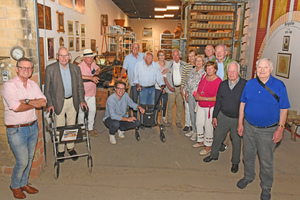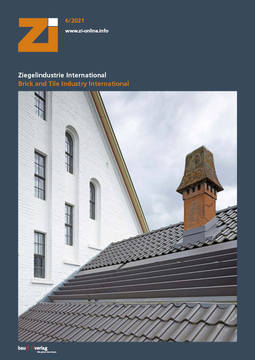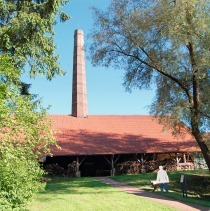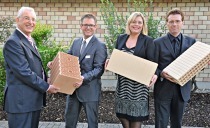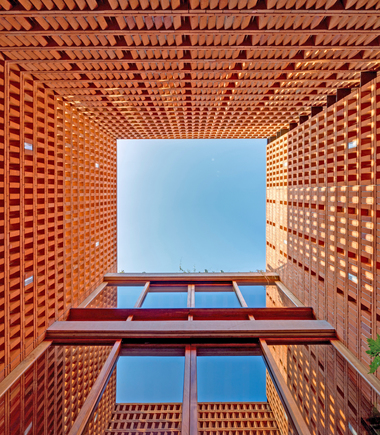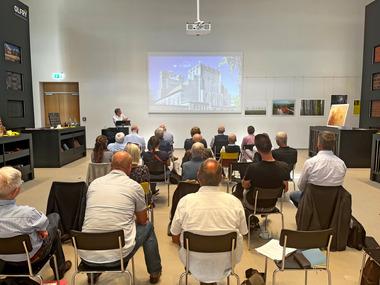Company museum documents brick history
Jungk brickworks was founded in 1862 and developed by a five generations to a major brickworks in Europe. Having stepped down from management of the company, senior director Ernst K. Jungk has gathered together historical documents, machines and other artefacts dating from the years 1862 to 1976, to present them in a small museum. This museum in Wöllstein was recently inaugurated during a visit by the surviving graduates of the final year 1959 at the state engineering college for ceramics in Landshut, Bavaria.
The museum comprises an analogue room and a technical room in which an impressive wall drawing of JUWÖ’s own annular kiln, built in 1879, can be seen in a scale of 1:1. This type of kiln was invented in 1859 by Friedrich Hoffmann and revolutionized the clay brick industry. In the exhibition rooms, the sustainability of clay brick production is documented over five generations, based on the four natural elements of earth, water, air and fire.
Historical exhibits from 1862 to 1976
One special exhibit is the fire brigade hose from the year 1886, with which Wöllstein’s fire brigade used to go into action, after it had been established in 1862 with the support of brickworks founder Philipp Jungk. “The sweat of this committed firefighter can certainly still be found clinging to the handles of this hose,” observed his descendant Ernst K. Jungk with a wink.
Before the visit to the museum, Stefan Jungk, the managing partner at JUWÖ Poroton as well as honorary president of the Federal Association of the German Brick and Tile Industry, informed the guests about current challenges for his industry. He explained how the political goal of minimizing CO2 emissions and achieving CO2 neutrality by 2045 was supported by the Association with scientific research projects. In addition, the Association was trying to inform policymakers about the sustainability of bricks. During their visit, the brick engineers, who completed their studies 62 years ago, signalled how happy they were that they no longer had to tackle these challenges.
The museum is open for groups of visitors. Visits can be arranged with Ernst K. Jungk by telephone, who will then personally guide visitors through the museum. Telephone: +49 (0) 6703 910 110

